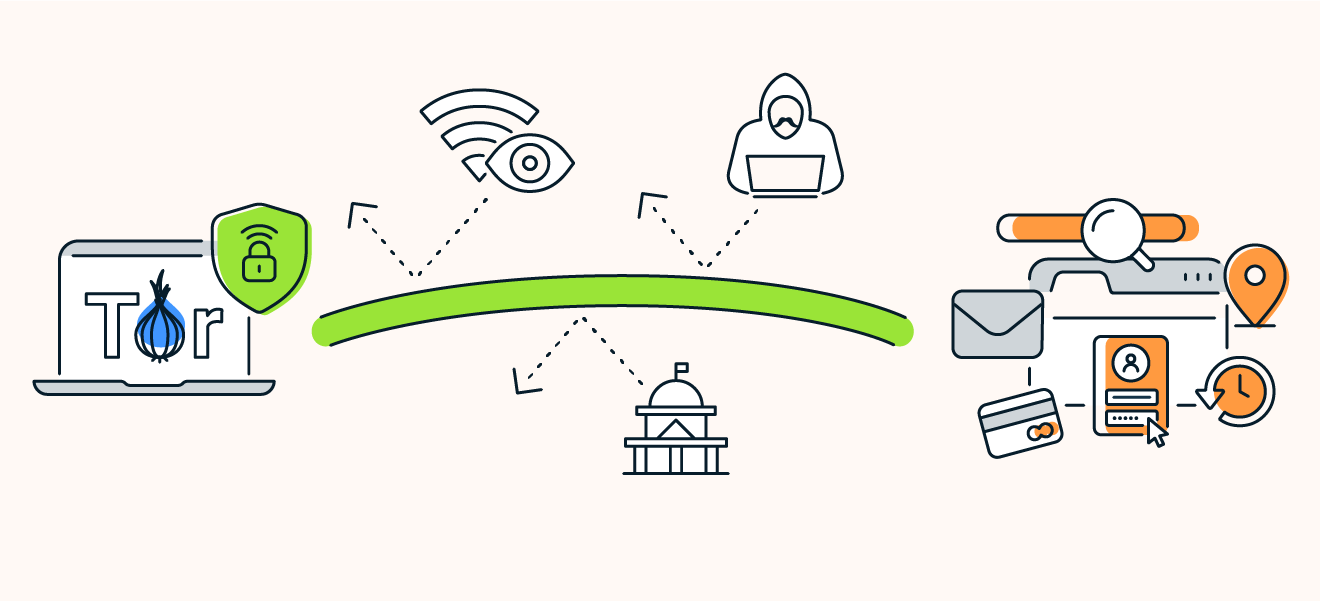Featured
Table of Contents
Can A Vpn Server Be Traced Through Tor?
In practice, Tor Internet browser is complimentary, while VPNs are generally paid, which makes your option easy? You ought to simply choose Tor and stop. Well,? Today, I want to give you a full comparison of Tor vs VPN and describe what they represent, their differences, utilize cases, and a lot more.
To start this Tor vs VPN comparison, I initially require to describe what these tools represent. Besides, offering you a clear meaning of what they are and how they work will assist you comprehend their distinctions, so pay attention. Starting with Tor, this term is an abbreviation for "The Onion Router".
Nord, VPN It's crucial to keep in mind that this is a tool for anonymity and not personal privacy I'll describe why shortly. When it comes to Tor nodes, they're held and preserved by volunteers, so we're speaking about a decentralized service, instead of a centralized service which holds true with a VPN.
The good side is anonymity due to the fact that nodes aren't operated by any specific companies, so you aren't risking storing and logging your browsing activity by that business. On the other hand, the security of each node depends on the person that's preserving it. A node can be compromised by a hacker, let's say, who will be able to trace your connection.
Vpn Vs Tor
The entry node is more vital since, when connecting to Tor, your ISP can see that you did that through the entry node. We'll talk about that later on in this Tor vs VPN article.

Its "The Onion Router" name comes from the truth that it peels the layers of file encryption similarly to the onion layers. Below, I explained how Tor works and the procedure of encrypting and decrypting your requests.
When you link to the Tor network and you send a request, you get triple file encryption for each node. There's the entry node (typically called the guard node), the middle node (or middle server), and the exit node. Tor sends your demand to the entry node, which gets rid of the very first layer of encryption.
The entry node can't read the encrypted material of the demand, so it still can't trace your activities inside the Tor network. The traffic is then sent to the middle node, which eliminates another layer of file encryption and sends the encrypted traffic to the exit node. The exit node peels the last layer of file encryption, which is why it can see the encrypted request but it can't identify who is sending it due to the fact that it can't see your IP address.
Vpn Vs Tor: Which One Is Right For You?
If you're aiming to stay confidential online and you're thinking about utilizing Tor, I think it's good to know more about its advantages and drawbacks, so inspect them out below. The triple layer of file encryption ensures 100% anonymity when utilizing Tor Browser It's totally free and doesn't require any subscriptions It's a decentralized, open-source network with no monitoring and security Tor Internet browser can going on the dark web The entry node can read your IP address and make it visible to your ISP when using Tor Decreases your internet speed substantially due to innovative file encryption Nodes are run by volunteers who might refrain from doing a fantastic task at making sure they're safe You can't pick an IP address from a particular country, so you can't bypass geo-blocks Tor Browser doesn't work on all platforms Wondering what are the differences between Tor and VPN? Well, for the start, a VPN is a tool for privacy, which suggests it'll hide your identity and avoid anybody from seeing who you are.
VPN services use thousands of servers in various countries, so they permit you to connect to any of them quickly and get an IP from the country you need. Each request you send is routed through a VPN tunnel where it is sent to a VPN server which decrypts it and links you to the site you want.
g. the site you're visiting The very same process applies to traffic originating from the network from your device. It's vital to discuss that a while Tor (Tor Internet browser) is focused on the part of the connection in Tor Web browser. This is why a VPN is appropriate for torrenting, for example, while Tor encrypts just the part of the connection sent out through the Tor Web browser.

With a single layer of encryption, the VPN in fact goes through less actions to secure your connection which has a huge benefit much faster speeds and better efficiency. Lastly, let's talk about the advantages and disadvantages of VPNs and see what they do well and what are their drawbacks. They're very easy to use VPNs can be set up on every platform (Windows, i, OS, Linux, Android, mac, OS, routers,) You can select an IP address from a specific country, letting you bypass geo-restrictions There's a greater degree of accountability due to the fact that you understand who owns the VPN servers VPNs are really fast and premium companies offer 10 Gbps servers Advanced security functions like a kill switch, advertisement blocker, and Multi, Hop Overall personal privacy, thanks to innovative file encryption and the ability to hide your original IP It's a paid service which can be a problem for budget-constricted users Some VPN services are known for saving logs (Hola VPN, Ninja, VPN, Betternet,) You must pick a reliable VPN that has a no-logs policy considering that you're handing over your privacy/anonymity to that business Now that you what Tor and VPN are, I feel the need to quickly summarize their distinctions simply to ensure you understand whatever well.
Latest Posts
10 Best Vpn Services Of 2023 - Top Vpns Rated By Experts
24 Best Vpn Services Available In 2023
Stay Safe On The Go With The Fastest Mobile Vpn